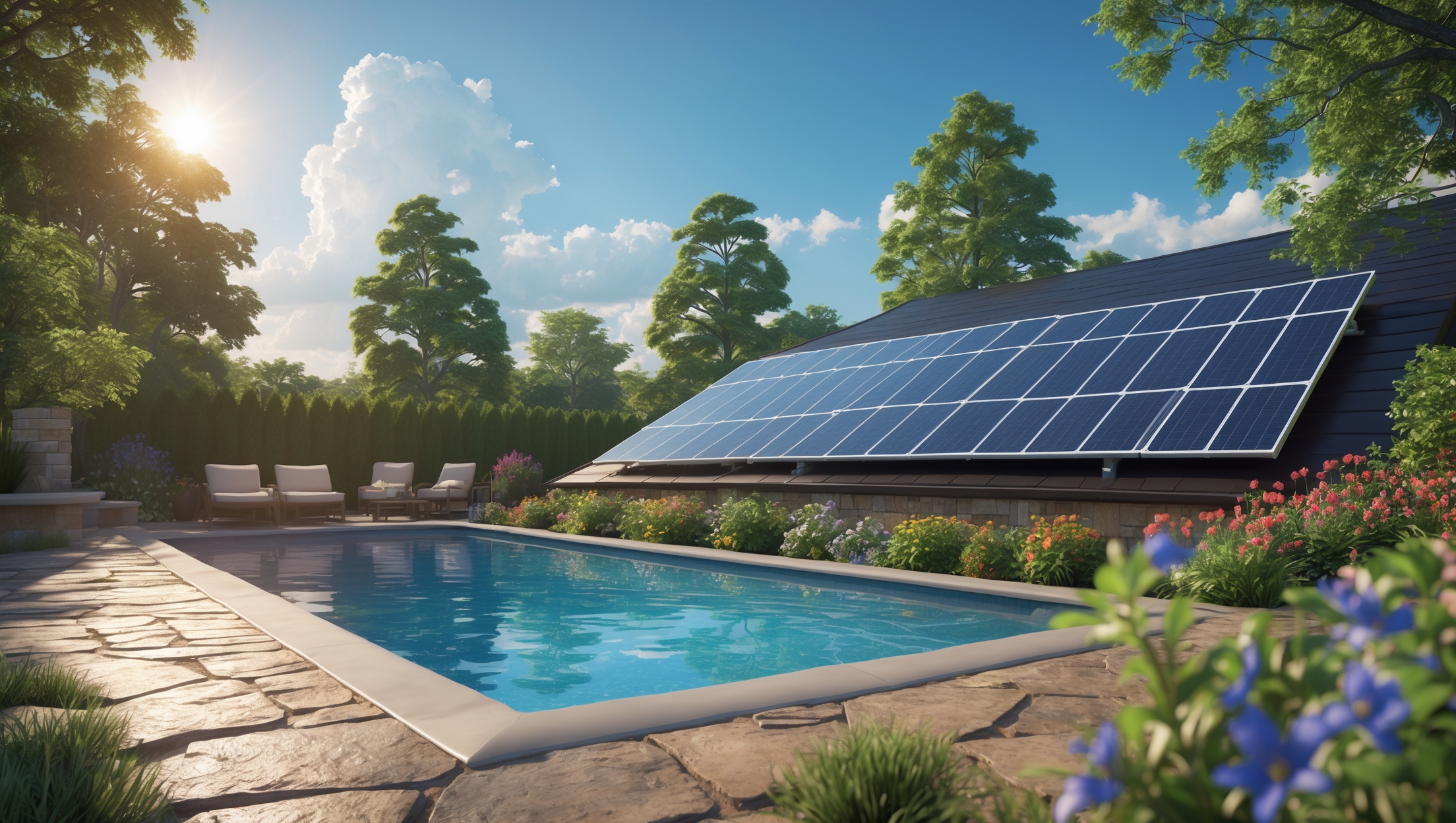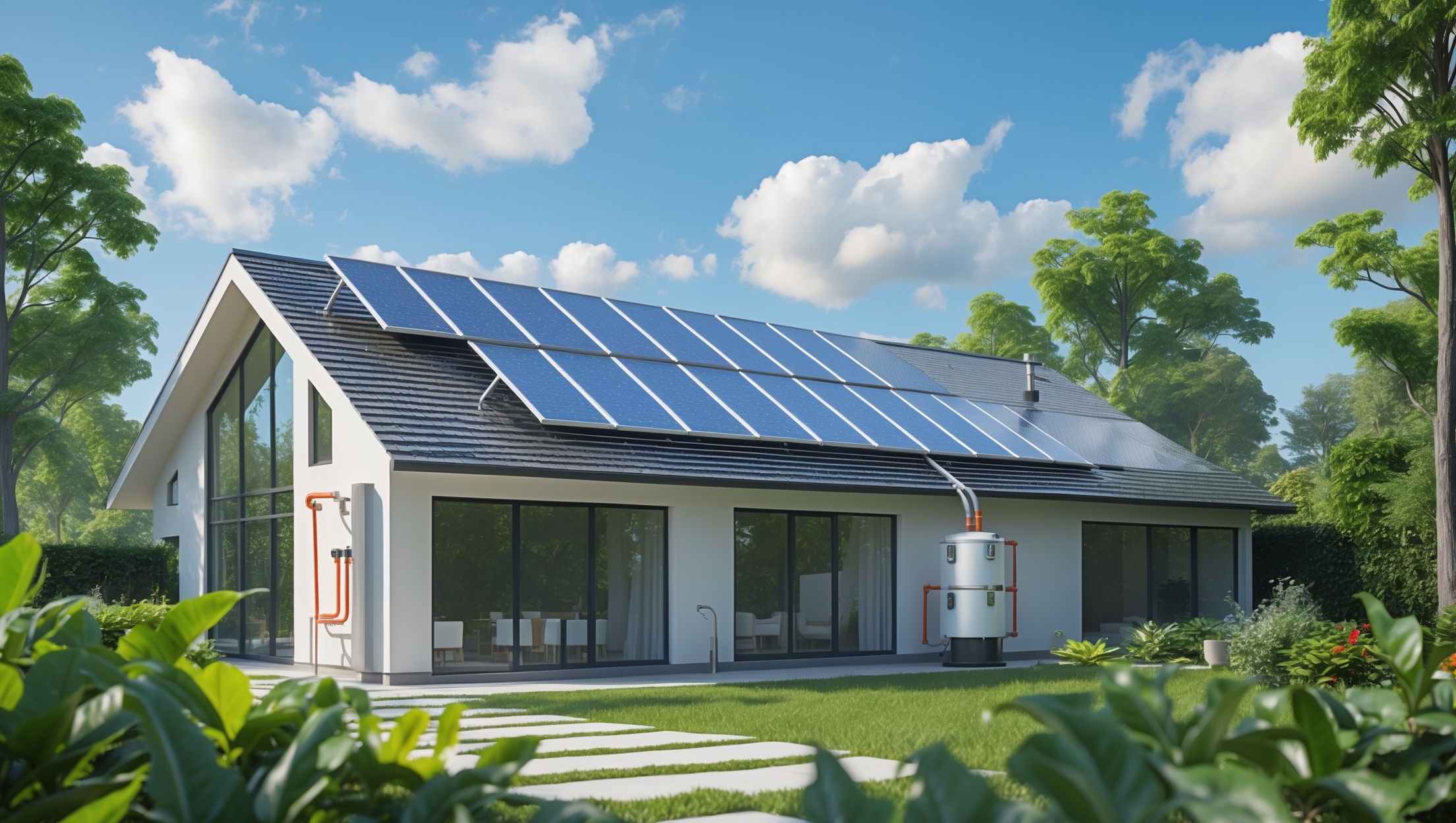Introduction: Why Insurance Matters for Solar Pool Heating Systems
As solar pool heating continues to gain popularity among homeowners seeking sustainable solutions, many are left wondering: how do I protect my investment? Solar pool heating systems not only reduce energy bills and environmental impact, but also represent a significant financial outlay for equipment and installation. Yet, the unique nature of these systems—exposed to the elements, integrated into plumbing, and sometimes installed on rooftops—introduces risks not always covered by standard homeowners insurance. From storm damage and leaks to liability issues, understanding the insurance essentials for solar pool heating systems is vital to safeguard your eco-friendly upgrade and avoid costly surprises. This guide provides a detailed, practical roadmap to ensuring your solar pool heating system is properly covered, whether you’re just starting your installation journey or want to reassess your current policies. Let’s explore the insurance landscape, highlight common pitfalls, and outline best practices to protect your sustainable pool investment for years to come.
Understanding Solar Pool Heating Systems: Components and Risks
How Solar Pool Heating Systems Work
Solar pool heating systems use solar collectors—usually mounted on rooftops or nearby structures—to capture and transfer heat from the sun to pool water. Water is pumped from the pool, circulated through the collectors, heated, and then returned to the pool. The system typically includes:
- Solar collectors: Panels or mats that absorb and transfer solar heat.
- Pipes and valves: Direct water flow and integrate with existing pool plumbing.
- Pumps: Circulate water through the system.
- Controller (optional): Automates system operation based on temperature sensors.
Common Risks and Vulnerabilities
- Weather Damage: Hail, wind, or heavy storms can crack or dislodge panels.
- Leaks: Faulty connections or freeze damage may lead to water leaks.
- Fire: Rare but possible if electrical components malfunction or panels overheat.
- Theft or Vandalism: Exposed rooftop equipment can be targeted.
- Liability: Improper installation could result in property damage or injury.
These risks make it crucial to review your insurance for gaps and ensure adequate coverage.
Does Homeowners Insurance Cover Solar Pool Heating?
Standard Coverage Scenarios
Most standard homeowners insurance policies cover “permanent fixtures” and “attached structures”. If your solar pool heating panels are professionally installed and considered part of the dwelling or an attached structure, they may be included under your dwelling coverage. However, coverage depends on:
- Whether panels are roof-mounted or ground-mounted
- How the system is attached (permanent vs. temporary)
- Insurer’s specific definitions of “fixtures” and “structures”
Standalone ground-mounted systems may be categorized under “other structures” (like sheds or fences), which typically have lower coverage limits than the main dwelling.
Policy Exclusions and Gaps
Common exclusions and limitations to watch for include:
- Damage from poor installation or maintenance: Faulty workmanship isn’t usually covered.
- Gradual wear and tear: Deterioration over time is not insurable.
- Flood or earthquake damage: These events often require separate policies.
- Off-grid or DIY systems: Some insurers won’t cover unpermitted or self-installed systems.
Always read your policy’s fine print to identify these gaps.
Types of Insurance Coverage for Solar Pool Heating Systems
Dwelling Coverage
Covers solar panels and heating equipment attached to your home or garage as part of the structure. Ensure your policy’s replacement cost is sufficient to include the value of your solar system.
Other Structures Coverage
Applies to solar pool heating systems installed on detached buildings or as ground-mounted arrays. Coverage limits are often lower (typically 10% of the dwelling limit), so you may need to increase this section of your policy.
Personal Property Coverage
Rarely applies, unless the system is portable or temporarily installed—which is uncommon for solar pool heating.
Liability Coverage
Protects against claims if your solar pool heating system causes property damage or injury to others, for example, if leaking water damages a neighbor’s property or if a panel detaches in a storm.
Equipment Breakdown Coverage
An optional add-on that covers mechanical or electrical failures not caused by external hazards. Especially useful for systems with automated controllers or pumps.
Flood and Earthquake Riders
Standard policies exclude flood and earthquake damage. If you live in a risk-prone area, consider separate coverage to protect your system.
How to Ensure Proper Insurance for Your Solar Pool Heating System
Step 1: Notify Your Insurance Provider
Always inform your insurer before or immediately after installing a solar pool heating system. Provide:
- Detailed description of the system
- Invoices and proof of professional installation
- Photos and placement diagrams
- Permitting documentation (if required by local authorities)
This allows your insurer to accurately adjust your policy and avoid denied claims due to “undeclared improvements.”
Step 2: Request a Policy Review and Increase Limits if Needed
Ask your agent to review your dwelling and other structures coverage. If your solar pool heating system’s replacement cost is significant relative to your home’s value, you may need to raise your coverage limits.
Step 3: Consider Additional Endorsements or Riders
Discuss equipment breakdown, flood, and earthquake riders tailored to your system’s risks and local environment.
Step 4: Check Installer Credentials and Warranties
Many insurers require proof of licensed, professional installation. Inquire about:
- Installer’s insurance and liability coverage
- Manufacturer and installer warranties (what they do and do not cover)
Warranties are not substitutes for insurance, but they can supplement your protection, especially for equipment defects or early failures.
Common Pitfalls: What Can Go Wrong Without the Right Insurance
- Claim Denials: Undeclared or DIY systems often lead to denied claims after weather damage or leaks.
- Underinsurance: Insufficient coverage limits may leave you responsible for the bulk of replacement costs.
- No Liability Protection: If your system causes water damage to neighboring properties, you could face out-of-pocket expenses or lawsuits.
- Uncovered Perils: Flood, earthquake, or gradual breakdowns not included in basic policies mean costly repairs or replacement.
Proactively managing your coverage is more cost-effective than dealing with losses after an incident.
Best Practices for Insuring Solar Pool Heating Systems
Document Everything
- Keep installation contracts, permits, receipts, and photos in a secure, accessible location.
- Update records after repairs, upgrades, or system expansion.
Schedule Regular System Inspections
Annual professional inspections can catch issues early and provide documentation that the system is well-maintained—a plus for insurers and warranty claims.
Bundle and Compare Policies
Some insurers offer green technology endorsements or discounts for eco-friendly upgrades. Compare policies across providers and ask about sustainability incentives.
Ask About Deductibles and Exclusions
Clarify what perils are covered, what your deductible will be for solar system claims, and what is excluded. Request written confirmation for system inclusion.
Frequently Asked Questions
Will my premium go up if I add solar pool heating?
Possibly. Adding expensive equipment can raise your home’s replacement value, thus increasing premiums slightly. However, some insurers offer discounts for green upgrades.
Is my DIY solar pool heating system insurable?
Most insurers require professional installation and local permitting. DIY systems may be excluded or only covered at reduced value. Consult your insurer before building one yourself.
What if my solar pool heating system is damaged by hail or wind?
If covered, storm damage is typically a named peril. However, check for specific exclusions and ensure your policy covers the full replacement cost of the system.
Do warranties replace insurance?
No. Warranties cover product defects, not external risks like weather, theft, or liability. Insurance is still necessary.
Checklist: Insuring Your Solar Pool Heating System
- Notify your insurer before or immediately after installation
- Provide full system documentation (invoices, permits, photos)
- Review and adjust coverage limits as needed
- Ask about relevant endorsements (equipment breakdown, flood, earthquake)
- Verify installer credentials and warranty coverage
- Schedule annual inspections and keep maintenance records
- Document all updates, upgrades, and repairs
- Compare insurance providers for best coverage and rates
Conclusion: Safeguarding Your Sustainable Investment
Adopting solar pool heating is a smart step toward sustainable living and energy savings. But to truly protect your investment, robust insurance coverage is essential. With the right policy, you’re shielded from the financial fallout of weather events, theft, liability issues, and unforeseen breakdowns. Start by proactively communicating with your insurer, providing detailed documentation, and understanding exactly what is—and isn’t—covered. Don’t overlook the value of professional installation and regular maintenance, both of which can not only satisfy insurance requirements but also extend the life and efficiency of your solar pool heating system.
Remember, insurance is not a static, one-time decision. As your system ages or if you expand your solar setup, revisit your policy to ensure continued protection. In the event of a claim, thorough documentation and up-to-date records will smooth the process and prevent disputes. By following the best practices and checklists outlined above, you can swim easy knowing your eco-friendly pool is backed by comprehensive, tailored insurance coverage. Sustainable living is about more than technology—it’s about smart stewardship and peace of mind for years to come.




